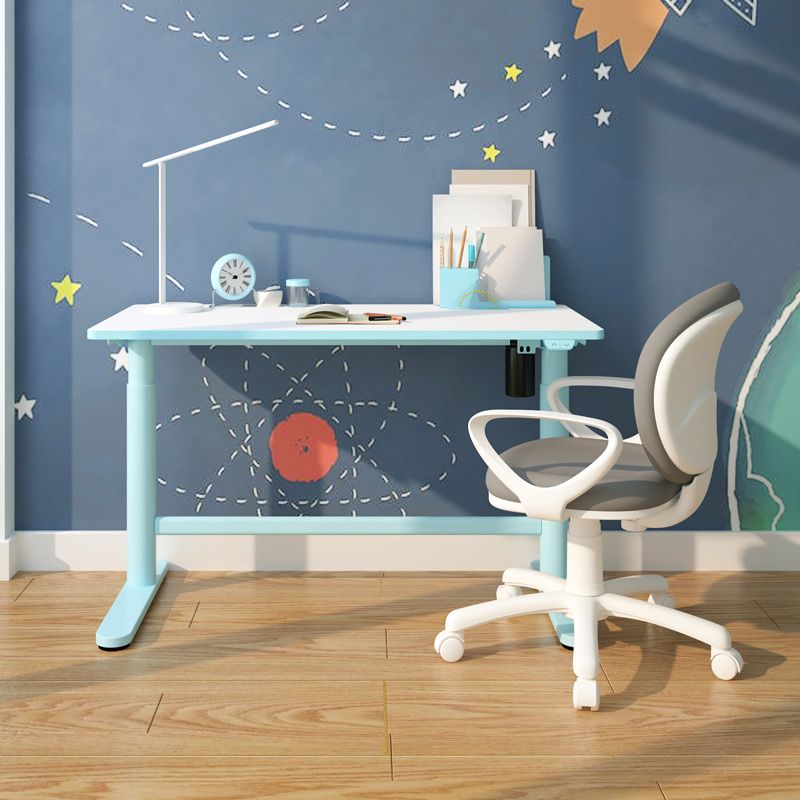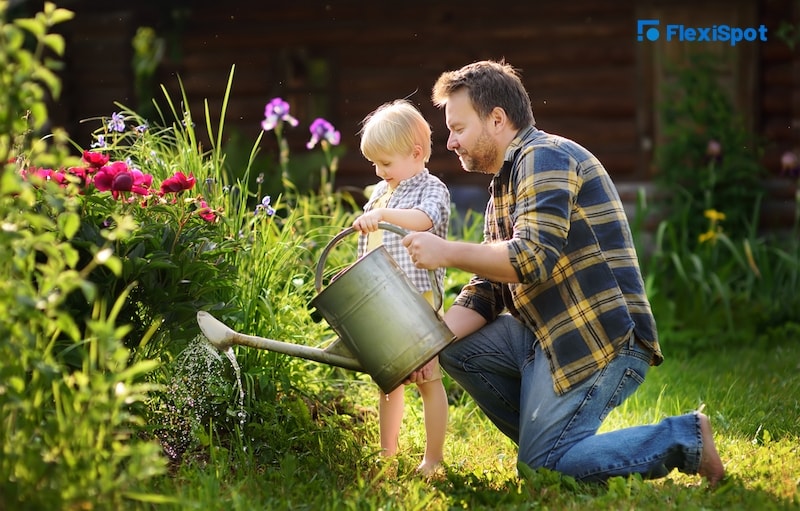They say that every home is a child’s first school. Yes, they will learn a lot from a school but there are also a lot of lessons that they learn right at home. You are your kid’s first teacher and will always be in whatever phase of their lives. As early as now, you may teach them as many as you can as they grow up and explore what they want. Your lessons don’t have to feel like it’s another school for them. You may disguise your “classes” as a fun bonding time that will excite your kids to learn something new.
Even though times are much better now compared to in 2020, there are still some parents who prefer their kids to be at home—safe from coronavirus. These parents try their best to keep their kids busy while they also build on skills that school would have taught them.
It’s difficult to keep kids away from their gadgets and to stay active while they are just chilling at home. Safety precautions are also in place that we all know disallow play dates, restaurant dine-in meals, and access to parks, zoos, and other crowded places that kids would have enjoyed.
This does not mean there are no activities you could plan for your kids’ entertainment and good health.
Before we list them down, we want to convince you why fun, quality times matter in a kid’s childhood.
BENEFITS
1.) Strong relationships are built.
If you want to lay a strong foundation for your relationship with your kids, then you should make playing together a priority. It’s not all about fun because children also learn core values through playing. They learn to trust others and feel secure during playtime.
2.) Children acquire and improve different skills.
Socializing is an important skill for a child to learn. When they are able to communicate with their parents and others, they begin to notice the different patterns of behaviour people use in social situations. They look at their parents and form an understanding of what is appropriate and not based on how they behave. Other skills kids may discover include:
gross motor skills
control of emotions
leadership
creativity
cognitive flexibility
3.) Play is good for parents’ health too.
Affectionate play between parents and children across ages releases the hormone oxytocin. This helps in parent-infant bonding.
ACTIVITIES
Since days are mostly spent at home, people have turned to height-adjustable desks and chairs or stools that promote active sitting to keep themselves aware that they have to move their muscles even during the focused time. These standing desks could be safely used with kids and heights could be adjusted to tailor fit their current heights. FlexiSpot boasts of its wide array of height-adjustable desks that are durable and moisture-proof, and even have an ergonomic sit-stand kids’ desk.
Below are affordable activities you could enjoy with your kids to keep them learning while at home with you.
Science Experiments
Prepare science experiments for preschoolers where they won’t need to exert that much effort. It won’t be overwhelming and will be a fun learning opportunity for them. Make sure as well that your chosen science project won’t blow up your house or leave it an absolute mess.
Identify Colors
Help your kid develop gross motor skills by simply lining up a pack of colourful pom-poms on a trail they could follow. They would learn to identify the colour, count how many pom-poms are there, and start sorting what they see in their heads. While counting, ask them to pick up the pom-poms from the floor which helps to develop their fine motor skills.
Writing
You are considered literate if you could read and write. Writing is an ability that will help anyone get their message across as well as fill forms, bills, letters, etc. Teach your kids how to write using a pencil and paper. You could start with a tracing exercise where they could connect the dots and form letters. You could also play with clay and shape letters out of Play-Doh. Drawing letters in shaving cream is also another option. This will prepare them a lot when they start their classes at school.
For preschoolers, you may teach them the alphabet as early as now.
Create an area where you’ll be learning how to write with your kid. Assign a table or desk to serve as your home's "writing hub.” This will make writing/prewriting exercises appeal more to your young children. The hub must be designed with materials that will inspire your kid to discover and experiment. When children are provided with resources, there are higher chances that they will start their own writing projects.
Set up your kid’s own home office. Choose a vacant corner at home where your kids could take and make phone calls, write letters and "send" them, and also type their own emails. Play office with your children by giving them a message to which they have to respond. Ask when you’ll get the response or if you’ll receive mail by snail. You may also request a face-to-face meeting.
Math on Anything
Math is a relatively easy subject to teach to a kid. For instance, if you are waiting in line at the restaurant, adding the number of customers can help them be familiar with numbers and counting.
There is always an opportunity to ask your child to count, whether it be the number of plates and utensils when you have dinner with the whole family or how many shopping bags you have after a whole day at the mall.
This will give preschoolers a head start to recognize numbers and learn how to count. You could also play math games using an abacus, solve fractions through dividing cookies, and even prepare to tackle advanced math problems.
Create a Website
Preschoolers are not too young to have their own website. With how tech-savvy they are, they can already take photographs for their site, let you know what they want to say in a post entry, and with your guidance, they’ll see for themselves how a website is run from the backend. Once they’re older, you can pass on the reins to them and they might want to rebuild the site—this time with more control on their hands.
Handling a website will help school-age children to develop writing and critical thinking skills. Early on, they will also learn about online safety.
Start a Store
It’ll be fun to play business with your children by assigning them various roles a shop needs. These include a shopper, manager, and cashier. Make it spontaneous and interact according to the given role. You may even try this while spring cleaning where your kids could shop for a few items with play money and those they do choose to buy will be discarded.
Music
Music plays a big part in shaping a kid’s life. Pass on a love of music to your kids and you’ll see for yourself that they’ll bring it for the rest of their lives. There are many ways that you could raise a child with music by probably giving them music lessons, teaching them how to play a musical instrument, and playing fun musical games that will help them know if they are hitting the right note.
What you could do is create a music trivia game where you’ll act out the answers and play instrument sounds to see if your child will be able to identify.
Put on a Play
Exercise your kids’ creativity by working on a short puppet play with them. You may start with a plot of a famous fairytale or if they’re up for it, they could make their own characters and plot. After the play, interrogate them about the story and the characters. Find out how they came up with the script.
You can also teach your kids how to take care of others by setting up toy cribs. Give them dolls which will be their babies and it’s up to them when they will bring them to sleep, bathe, and eat. Create caregiving situations with your children and don’t forget to compliment them for a good job.
Boost Storytime
Enrich your child’s vocabulary through the four ways.
1. Make a list of unfamiliar words and briefly describe and discuss to your kid each word in your list.
2. When reading a book, pause to ask your child if they understand a certain word. During the day, bring up the word and use it in another context so that your kid will be more aware of it.
3. Point to letters when you say their names or sing ABC while you point your fingers to each letter in the book. They will have a higher chance of recognizing or recalling the letter when attached to a tune.
4. Open the book at random pages to see if your kids could name and point to the letters.
Explore Cultures
Preschoolers will be fascinated with almost anything new to them. Introduce other countries by asking for their help in the kitchen and tasting the food together. You may also design crafts that are unique to each country. It would help if school-age children know about basic etiquette, universal and local so that they know the value of respect. You may write to a “pen pal” from another part of the globe and learn even just basic words of a foreign language.
Gardening
This is the perfect hobby to teach science, diet, and patience all in one. Make sure you require them to keep a record of their progress by tallying days on a calendar and making visual notes as well as measuring the growth of their plants.
Have your own greenhouse at home or visit one with your preschooler. This is your way in to inform them about a healthy diet, encouraging them to eat fruits and vegetables. Depending on your kid’s age, they could already keep a gardening log themselves, identify plants by their scientific names, and cultivate more complex ones.
Final Thoughts
Inculcate a love for learning to your kids by starting engaging home activities for them. They could be exposed to simple math, reading, and science even before they go to school. At this point, their minds are like sponges that could count, recite letters, and group toys by colour. The world is their oyster!







